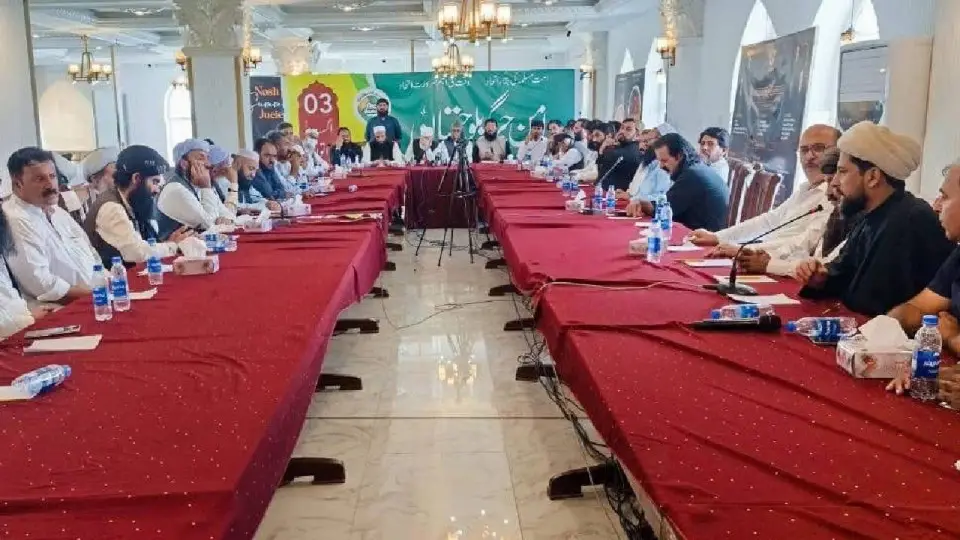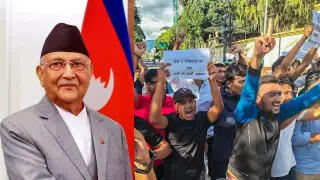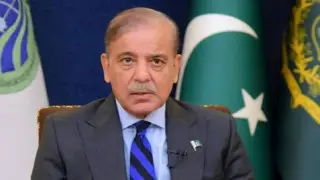
Credit:Top india News (Credit:Top india News)
New Delhi: A new coalition of terrorist organizations has emerged in Pakistan's Balochistan. Lashkar-e-Taiba has joined forces with the Islamic State (ISKH). Declared "un-Islamic" by Islamic countries and the Afghan Taliban, the ISKP has now emerged as a new weapon for the Pakistani military establishment. Pakistan's ISI is using it against Baloch nationalists and Taliban groups challenging Islamabad's influence.
ISIS-K's propaganda magazine, Yalgar, reveals its intention to expand its activities in Kashmir. Security experts say this is unlikely to be possible without the coordination and encouragement of Pakistan's intelligence agencies. Pakistan is now promoting cooperation between Lashkar-e-Taiba (LeT) and ISIS-K, with the aim of utilizing Lashkar's logistical network to strengthen ISIS-K's terrorist capabilities. This potential partnership is not only a concern for Afghanistan and Balochistan but also raises concerns about the revival of terrorism in Jammu and Kashmir.
A recent photo emerged from Balochistan showing ISIS-K coordinator Mir Shafiq Mengal handing a pistol to senior Lashkar-e-Taiba commander Rana Mohammad Ashfaq. This photo strongly suggests cooperation between the two organizations, highlighting the role of Pakistan's intelligence agency, the ISI. This Mir Shafiq Mengal is the son of former Balochistan caretaker Chief Minister Nasir Mengal, who has long served as a key pawn for the ISI.
After the Taliban came to power in Afghanistan, the ISI redesigned ISIS-K's activities in Balochistan. The Mastung camp was given responsibility for attacks on Baloch insurgents, while the Khuzdar base was used for cross-border operations. In March 2025, when Baloch fighters attacked an ISIS-K base in Mastung, killing approximately 30 militants, the ISI directed Lashkar-e-Taiba to intervene.
In June 2025, LeT chief Rana Ashfaq and his deputy, Saifullah Kasuri, held a jigra (consultation meeting) and called for a "jihad" against Baloch separatists. Experts believe the presence of Mengal and Ashfaq in the recent photo indicates the formalization of ISIS-K–LeT cooperation. However, Lashkar-e-Taiba's presence in Balochistan is not new. Its Markaz Taqwa, led by Afghan war veteran Mian Saqib Hussain, has long been active in Quetta.
LeT also operated a training camp in this area between 2002 and 2009. The same center where Indian Mujahideen co-founder Yasin Bhatkal received training in 2006. It is now believed that Lashkar-e-Taiba may deploy its fighters alongside ISIS-K in operations against Baloch insurgents. This cooperation is reminiscent of the limited partnership LeT had with al-Qaeda during the Afghan jihad.
It would not be wrong to say that this closeness between Lashkar and ISKP signals a profound shift in Pakistan's terrorist ecosystem, where ideologically diverse extremist groups are uniting under a state-sponsored framework. This alliance not only has the potential to increase instability in Balochistan and Afghanistan but could also create new security challenges in the Jammu and Kashmir region.













Copyright © 2025 Top Indian News
